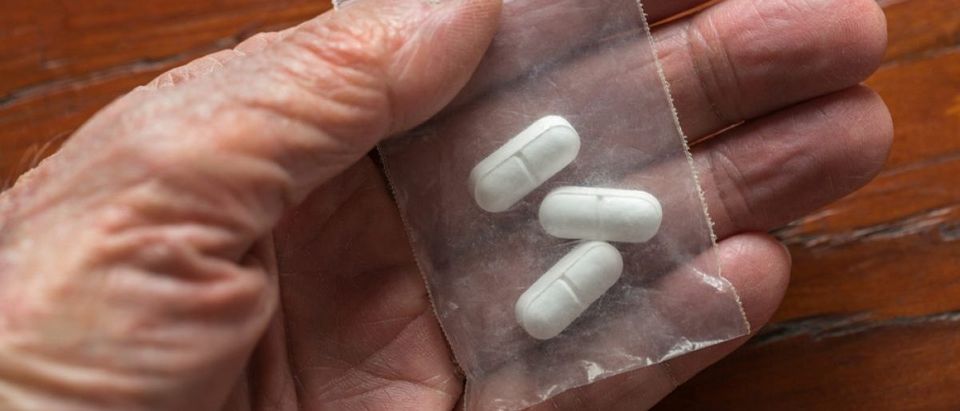A major trade association for pharmaceutical distributors defended a law that weakened the Drug Enforcement Administration (DEA), while ignoring key facts about how the now-stripped power once let the agency suspend distributors that shipped alarming numbers of opioid pills.
The pharmaceutical industry – including the Healthcare Distribution Alliance – spent millions lobbying for the Ensuring Patient Access and Effective Drug Enforcement Act, which made it nearly impossible for the DEA to suspend drug distributors if their opioid-based painkiller shipments reached suspicious volumes, The Washington Post and 60 Minutes jointly reported.
“The Washington Post and 60 Minutes have done a major disservice to the battle against opioid abuse with their biased and one-sided reporting,” the Healthcare Distribution Alliance, a trade association for pharmaceutical distributors, said in a Wednesday statement titled “A Crisis of Misinformation.”
The alliance called the DEA’s suspensions a “hit-and-miss approach” that jeopardized legitimate patients’ access to opioid-based painkillers.
“We cannot forget that while many have abused these medicines, there are many more patients suffering from cancer, recovering from surgery or facing other serious health issues who have limited options,” the statement said.
The alliance has also argued that, prior to the new law, the DEA didn’t set clear guidance on how large pill shipments would be considered suspicious, and that the agency didn’t communicate well enough with distributors.
But the Healthcare Distribution Alliance ignored examples in the WaPo/60 Minutes report where the DEA suspended distributors that were shipping especially large numbers of pills.
In one instance, 11 million painkillers were shipped to a West Virginia county with a population of 25,000, according to the WaPo/60 Minutes investigation. In another, some Walgreens pharmacies in Florida sold more than one million opioid pills a year – nearly 14 times the number sold by a typical pharmacy.
The alliance also pointed out that acting DEA Administrator Robert Patterson said the new law hadn’t slowed down the DEA’s enforcement. But the Healthcare Distribution Alliance ignored Patterson’s additional comments that the law has, in fact, created new challenges for the agency.
Patterson noted that the number of entities that voluntarily surrendered the ability to give out drugs had increased. Additionally, the Healthcare Distribution Alliance said the DEA allowed production of the opioid oxycodone to increase by 200 percent from 2004 to 2013.
The trade association also said the primary source for the WaPo/60 Minutes investigation was a former DEA official who consults trial lawyers suing the pharmaceutical industry. But the article included interviews with other several other sources and quotes from a significant number of documents.
The DEA’s aggressiveness with suspensions was already hampered before the law passed, according to the WaPo/60 Minutes investigation. Officials were forced to present more evidence before suspending distributors and the agency’s management became more willing to cooperate with the pharmaceutical industry.
Meanwhile, dozens of DEA officials left the agency and took jobs with drug companies over the past few years, according to the investigation.
Additionally, the Healthcare Distribution Alliance spent $3.5 million on lobbying in support of the legislation between 2014 and 2016, WaPo/60 Minutes found, which the association didn’t address in its statement.
Send tips to ethan@dailycallernewsfoundation.org.
All content created by the Daily Caller News Foundation, an independent and nonpartisan newswire service, is available without charge to any legitimate news publisher that can provide a large audience. All republished articles must include our logo, our reporter’s byline and their DCNF affiliation. For any questions about our guidelines or partnering with us, please contact licensing@dailycallernewsfoundation.org.


